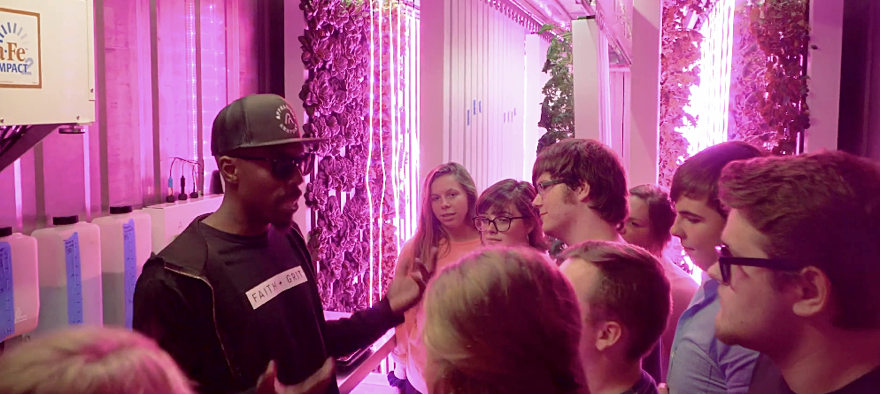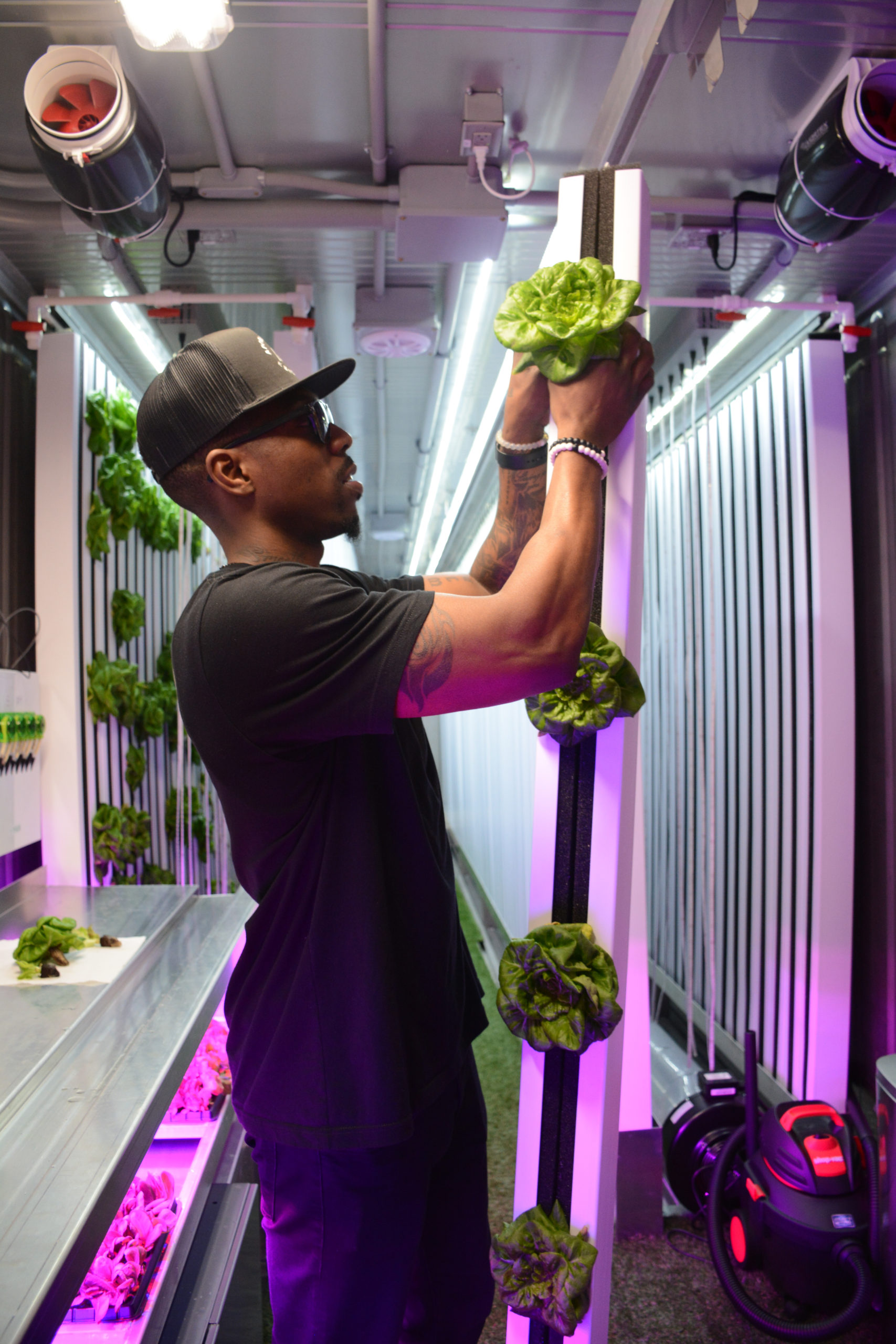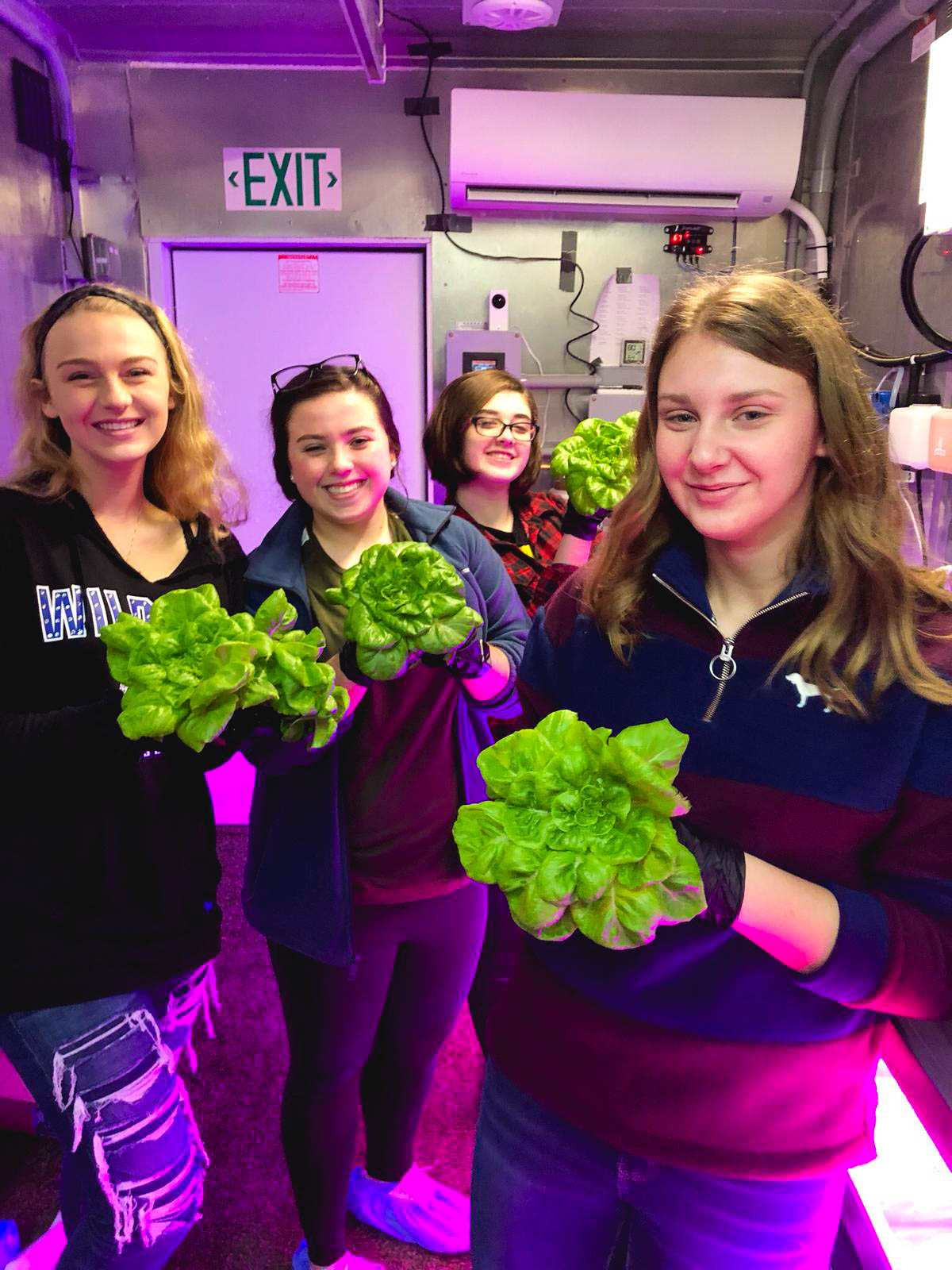
A new industry in Eastern Kentucky is sending us all an urgent reminder that workforce readiness must be an educational priority.
AppHarvest, a sustainable greenhouse company based in Morehead, made its stock market debut last week. In a state with fewer than 20 publicly traded companies, the innovative agritech corporation looks poised to make an immediate impact on some of the state’s rural communities, and it’s investing in students to do it.
For those unfamiliar with its background, AppHarvest started as a 60-acre indoor farm for fresh, chemical-free produce in Morehead and recently broke ground on new farms in Berea and Richmond. The company’s indoor farming approach means that pesticides and inclement weather are never concerns, so farmers there can yield fresh fruits and vegetables year-round. One eye-catching part of AppHarvest’s approach is piloting container farms in nearby high schools, giving local students access to emerging technologies needed to learn the ropes and eventually take over as the company’s next generation of skilled workers.


It’s a winning combination—students learn valuable work-ready skills, AppHarvest gets to grow and train its own future workforce, and the economies of small towns like Berea and Morehead get a much-needed shot in the arm.
But it’s also a salient reminder that [pullquote]students who don’t have access to these kinds of opportunities—like high-quality STEM education or “work-based” learning experiences during the school day—may be at a real disadvantage when it’s time to join the workforce.[/pullquote] It’s called the “skills gap,” and no matter where you look, you can see the writing on the wall.
Nearly three-quarters of all employers agree that there is a lack of skilled talent in the available workforce. Because most of them can’t simply grow their own workforce like AppHarvest, managers face challenges in locating workers with the skills to match the expectations of the job. Given the World Economic Forum’s prediction that 42% of essential workplace skills will be centered around emerging technology skills by next year, the implications for K-12 schooling are profound.
Clearly, the tea leaves are showing an urgent, growing need for high-quality career and technical education programs. In our rapidly digitizing economy, leaving employers to their own devices to upskill workers may not be sustainable—especially when corporations like AppHarvest are giving us a blueprint for getting it right.
When AppHarvest first began piloting container farms in schools, it started with three local high schools in Eastern Kentucky. Now, AppHarvest is expanding to 20 high schools and is seeking to build 12 greenhouse facilities by 2025. [pullquote]This growth could lead students to greater work-based learning experiences and valuable access to new technologies, putting a real dent in the “skills gap” in their communities.[/pullquote]
AppHarvest’s model could also serve as an example for communities across the country. By partnering with local employers—whether major corporations or small-town manufacturers—school districts can go a long way in getting new technology in front of students and equipping them with the skills they need to be work-ready. To really combat the “skills gap” and begin building a 21st-century economy, now is the time for education and workforce leaders to come together and consider how AppHarvest’s approach could be replicated, adapted and scaled.

Opportunities like these must not be afforded exclusively to kids with a publicly-traded company in their backyards. Whether students hail from small rural towns, huge urban areas, or somewhere in between, the competition they’ll face after graduation is only getting more intense and more globalized. Education and industry will need to meet students where they are in order to get them where they need to be.
Garris Stroud is an award-winning educator and writer from Greenville, Kentucky whose advocacy and scholarship have been recognized by USA Today, U.S. News and World Report, Education Post, The Louisville Courier-Journal, and The Lexington Herald-Leader. He served as a Hope Street Group Kentucky State Teacher Fellow from 2017-2019 and became chair of the organization's editorial board in 2018. Stroud received bachelor's and master's degrees in education from Murray State University and is currently a doctoral student in educational leadership at the University of the Cumberlands, located in the heart of Kentucky's Appalachian region. Read more about his work on the Kentucky School Talk and Rural Ed Voices blogs.
The fight for educational equity has never been just about schools. The real North Star for this work is providing opportunities for each child to thrive into adulthood. This means that our advocacy...
Your donation will support the work we do at brightbeam to shine a light on the voices who challenge decision makers to provide the learning opportunities all children need to thrive.
Ed Post is the flagship website platform of brightbeam, a 501(c3) network of education activists and influencers demanding a better education and a brighter future for every child.
© 2020–2024 brightbeam. All rights reserved.